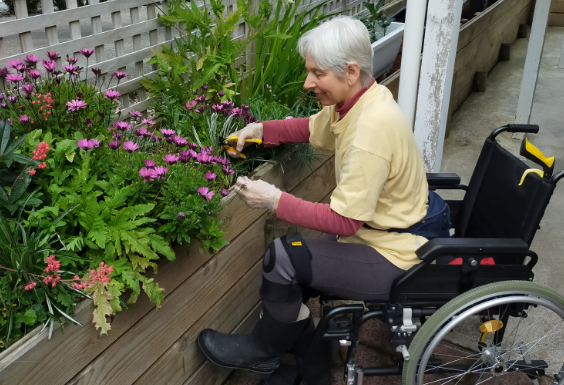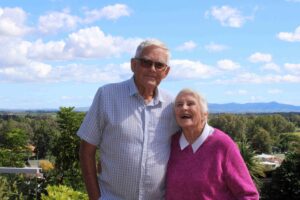By FRANCES HELLENDOORN
Acromegaly and the panhypopituitarism that followed are difficult words to pronounce and even harder to understand.
My name is Frances Hellendoorn. I live in Thames with my husband and cats Buddy and Holly. In 2009 at age 40 I was diagnosed at Waikato Hospital with Acromegaly and transferred five days later to the High Dependency Unit at Auckland Hospital for surgery.
I was losing my vision because a pituitary adenoma (benign tumour) was pressing on my optic nerve and from ‘crazy’ menstruation I now had none. I also had high prolactin levels.
Acromegaly is caused by a pituitary tumour which produces too much growth hormone. The incidence is three or four new cases per million people per year, however, recent research shows it to be much more common than previously thought.
Treatment options include surgery, radiotherapy and medications. My tumour was estimated to have been there around 11 years when found and so a lot of the damage was already done.
In order to remove the tumour, almost all my normal anterior pituitary gland was removed causing panhypopituitarism as the production of all pituitary hormones were reduced. I have secondary adrenal insufficiency, which is life threatening, because the pituitary can no longer instruct my adrenal glands to make the stress hormone cortisol. For this, – I carry an emergency steroid injection in a soap box wherever I go.
I live on a knife edge, dependent on steroids and replacement hormones lifelong. I am constantly monitoring my body for a downturn in core energy due to the onset of illness or the impact of severe emotional stress. I need to respond quickly to increase my steroid dose and reduce demands on my body.

To get through each day, I need regular periods of absolute rest.
My quality of life has been impacted enormously. My husband and I have lost normality; slice after slice has gone. I was a distance runner and swimmer. My dream was to do the Coast to Coast multisport event. I live with severe physical pain in both the small and large joints from extensive osteoarthritis due to the excess growth hormone. I have had surgery on my spine and am on a waitlist for a total knee joint replacement.
I wish all stores had a customer chair beside the checkout for patrons to rest on. I cannot prepare food due to the arthritis in my hands. The brain fog makes driving and cognitive tasks difficult.
My life is an everlasting series of tests and procedures such as regular colonoscopies as my colon has grown extra long due to excess growth hormone. Acromegaly can cause polyps in the bowel that can lead to bowel cancer.
Trips even to Thames require a support person. There is no adequate carer support funding, so my husband never gets a break. Travel is difficult therefore since the surgery we have seldom seen our family. The loss of my career as an early childhood teacher has created an ongoing financial struggle.
We have lost the trajectory of life with its associated social norms. Unable to have children, therefore no grandchildren, we watched with pain our peers having families. Without children and easy access to town, life and engagement with society passes you by and you are trapped in a back water.
Finding a place to grieve for such enormous losses due to chronic illness has been very difficult. I try to explain to people what my limits are as a way to support and protect myself, but it is as though that fence is invisible to people. This makes me very isolated, including in the health sector.
My experiences have led me to have more empathy, especially for elderly people. My husband and I would not have endured all that we have without our faith in our loving God and our community at Thames Baptist Church and friends in the Kauaeranga Tramping Club that I used to tramp with.
Rare diseases are often invisible because they lie beyond the people’s comprehension.
DETAILS: Rare Disease Day is a day of global solidarity, marked each year around the world on the last day of February (the rarest day of the year) to raise and to advocate for equity for rare disorders. There are more than 7000 different types of rare disorders, with more being discovered each day. More information: www.raredisorders.org.nz.




